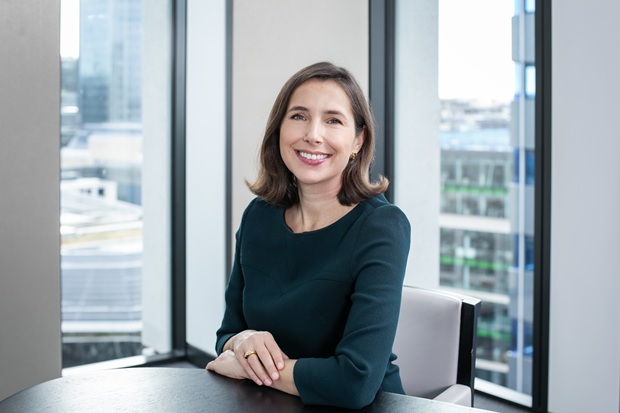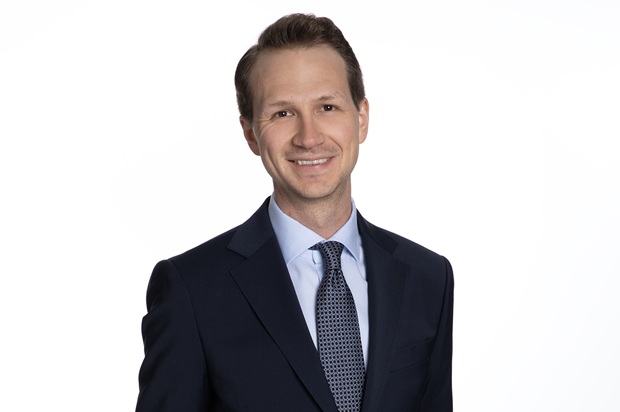
Allocation challenges in unpredictable times
At the end of last year Tell Media Group, in cooperation with Blackrock and BNP Paribas Asset Managers, gathered Swedish asset owners to discuss expectations going into 2024, some of the major surprises in markets and their views looking ahead to 2025.
The annual gathering of Swedish institutional investors to discuss asset allocation and the outlook for 2025, which was hosted in Stockholm in December, started with the investors sharing what they see as some of the key surprises over the past year.
CLAES AHREL: “I must of course highlight the strength of the equity market as the main surprise – especially the Nasdaq and the magnificent seven. I must also admit that I expected higher volatility during last year. Even if it increased during the second half, I think the VIX was around 15 on average and that’s quite low considering what’s going on in the world. I also expected higher energy prices. The price of Brent oil today is almost exactly where we started the year.”
CECILIA THOMASSON BLOMQUIST: “I would also say that the strength of the equity market has been the big surprise, especially in the US, and the fact that concentrations continue to increase. I was also taken by surprise by the strong market reaction during the summer. That showed that it’s quite fragile. Almost nothing happened and still you had this sell-off in the market. I also think it’s interesting that equity markets continue to rise despite the fact that we now know that the Fed will not decrease rates as much as previously expected.”
JON VALDELIN: “I agree with that. I was quite surprised about inflation falling without a resulting growth slowdown and typical recession signals did not pan out. Interest rates remain quite elevated and a high-for-longer scenario has become the new consensus while markets continue to perform strongly. The old playbook no longer applies.”
DANIEL MORRIS: “If we go back to the beginning of the year, the consensus was that we were to have a recession. Why? Because of the inverted yield curve. However, the equity markets were telling us that a recession was not going to happen. The inverted yield curve only told us that eventually growth will slow, inflation falls and rates go down. I also think it’s important to note that we had come through an unprecedented time of pandemic lockdowns, QE and massive fiscal stimulus. Now I think we’re back to some sort of normalcy.”
CECILIA THOMASSON BLOMQUIST: “I mentioned I was surprised about the equity market but I should add that going into 2024, I was bullish. I expected equities to perform, but not in the way they have done.”
CLAES AHREL: “I agree – it was the same with us. When we realised what was going on, we took an active decision to add to our US equity exposure. We did that in January so that was of course a good call. However, when we reached July, we reduced that exposure and with hindsight we should of course have kept that exposure.”
MARIE GIERTZ: “Within the equity exposures, the biggest change on our end has been that we have continued to divest from emerging markets. At least in the short run that’s been a good call as we shifted the assets to global developed markets, which is a lot of US. Emerging markets have been a disappointment from a performance point of view for a very long time and it’s something that we’ve discussed since I joined the firm. More recently, we’ve of course also seen the governance issues increase when Russia invaded Ukraine, so now it was also more of a strategic call, also from an ESG point of view.”
NIKLAS TELL: CECILIA, YOU’VE ALSO MADE SOME CHANGES TO YOUR EMERGING MARKETS ALLOCATION.
CECILIA THOMASSON BLOMQUIST: “In the overall allocation, we were overweighted equities in the beginning of the year and we stayed overweighted until October/November. Then we thought we better consolidate and take some of the gains. When it comes to emerging markets, we had two mandates, where one was heavily overweighted China and another that was more neutral China. We didn’t want to exit emerging markets completely as we think that’s a very big call, but we did decide to eliminate the mandate with the overweight to China.”
NIKLAS TELL: WAS THE MAIN REASON FOR DECREASING THE EXPOSURE TO EMERGING MARKETS PERFORMANCE OR WAS IT MORE ABOUT ESG AND GOVERNANCE?
CECILIA THOMASSON BLOMQUIST: “It was more of a governance issue. How protected are you when you invest in emerging markets? I did not expect what happened in Russia but it did and I think that’s one of the reasons why these are called emerging markets.”
CAROLINE LIINANKI: JON, WHAT ARE YOU HEARING FROM NORDIC INVESTORS WHEN IT COMES TO THE EMERGING MARKET EXPOSURES?
JON VALDELIN: “Nordic investors look at emerging markets through different lenses. Should I generalise, emerging markets has been a debated topic in 2024 and more so than in 2023. Some investors have exited, some have chosen a customised approach, while others see opportunities on the debt side. Later in 2024, we saw more investors adding emerging market exposures as part of their strategic asset allocation changes.”
MARIE GIERTZ: “I also think it’s important to highlight that we do have an indirect exposure to emerging markets through our global equity allocation. This is even more so when it comes to Swedish equities where companies are even more exposed to emerging markets. That’s why it’s still very important to continue to follow what’s happening in these regions.”
CLAES AHREL: “We haven’t made any bigger changes. We’ve reduced our allocation a little bit but we do keep some exposure. We have of course also been disappointed by the performance, but we don’t have that big exposure in the strategic portfolio anyway.”
… continued … the roundtable discussion was originally published in issue 01, 2025 of Nordic Fund Selection Journal and a PDF of the complete story can be found here.
// Participants
- MARIE GIERTZ: Chief investment officer at the time of the discussion but CEO since February 1, Kåpan Tjänstepension
- CECILIA THOMASSON BLOMQUIST: Chief investment officer, PP Pension
- CLAES AHREL: Managing director, Telia Pension Fund
- DANIEL MORRIS: Chief market strategist, BNP Paribas Asset Management
- JON VALDELIN: Head of institutional Nordic region, Blackrock



